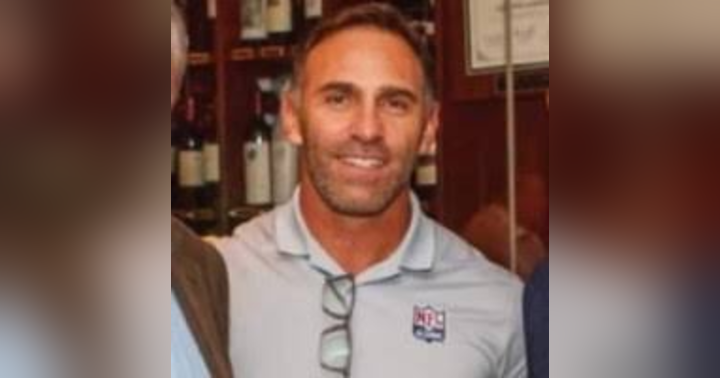From Battlefield to Boardroom: Robert Heavilin's Transition and the Birth of The Heavys' Hitters Project

In our latest podcast episode, we sat down with Robert Heavilin, a Marine Corps veteran whose journey from the battlefield to the boardroom is nothing short of inspiring. Robert's story is one of resilience, struggle, and ultimately, profound purpose. He bravely shares his personal experiences with the challenges of transitioning from military to civilian life, battling mental health issues, and the impetus behind founding The Heavys' Hitters Project. This blog post delves deeper into Robert's story and the vital mission of his organization. Be sure to listen to the full conversation on our podcast episode Robert Heavilin to hear his story in his own words.
Robert Heavilin's Journey
Robert Heavilin's story begins with his service in the Marine Corps from 2013 to 2018. His time in the military, including working alongside allied forces in Afghanistan as a contractor, shaped him profoundly. Like many veterans, Robert returned home carrying invisible wounds and grappling with the difficulties of reintegrating into civilian society. His journey, marked by personal challenges and a deep understanding of the struggles faced by his fellow veterans, ultimately led him to establish The Heavys' Hitters Project.
From Marine to Civilian: The Challenges of Transition
The transition from military to civilian life is often far more complex and challenging than many anticipate. Veterans, having served their country with dedication and sacrifice, often find themselves facing a stark contrast between the structured environment of the military and the often-unpredictable nature of civilian life. This transition involves more than just finding a job or a place to live; it requires a fundamental shift in mindset, identity, and purpose.
Loss of Structure and Purpose
In the military, every day is meticulously planned, and individuals understand their role within a larger mission. This structure provides a sense of stability and purpose. Upon leaving the military, this framework disappears, leaving veterans feeling lost and without direction. The sense of camaraderie and shared purpose that defined their military experience is often replaced by isolation and uncertainty.
Mental Health Challenges
Many veterans grapple with mental health issues such as Post-Traumatic Stress Disorder (PTSD), anxiety, and depression. These conditions can stem from exposure to combat, traumatic events, or the general stress of military service. The symptoms can be debilitating, impacting relationships, work, and overall quality of life. The transition to civilian life can exacerbate these issues as veterans lose access to the support networks and mental health resources available within the military.
Navigating the VA System
The Department of Veterans Affairs (VA) is designed to provide healthcare, benefits, and other services to veterans. However, navigating the VA system can be a daunting and frustrating experience. Bureaucratic processes, long wait times, and complex eligibility requirements can leave veterans feeling overwhelmed and discouraged. Many veterans struggle to access the care and support they need, further compounding their challenges.
Finding a New Identity
Military service often becomes a core part of a veteran's identity. The uniform represents more than just a job; it symbolizes dedication, sacrifice, and a commitment to serving the nation. Upon leaving the military, veterans may struggle to redefine themselves and find a new sense of purpose. This can be particularly challenging for those who dedicated a significant portion of their lives to military service.
The Birth of The Heavys' Hitters Project: A Mission for Veteran Mental Health
Witnessing firsthand the struggles faced by his fellow veterans, and navigating his own challenges, Robert Heavilin felt compelled to take action. This conviction led to the creation of The Heavys' Hitters Project, an organization dedicated to supporting veteran mental health, preventing suicide, and fostering a community where veterans feel seen, heard, and understood.
The Inspiration Behind the Project
The Heavys' Hitters Project was born out of Robert's personal experiences and his deep empathy for the challenges faced by veterans. He recognized the urgent need for a supportive and accessible platform where veterans could connect, share their stories, and access mental health resources without judgment. His vision was to create a space where veterans could find solace, camaraderie, and hope.
The Name: A Symbol of Strength and Support
The name "The Heavys' Hitters Project" carries significant weight and meaning. "Heavys" refers to the heavy burdens that veterans carry – the invisible wounds of war, the emotional scars of trauma, and the weight of their experiences. "Hitters" represents the proactive approach of the organization – actively fighting for veteran mental health and striking down the stigma surrounding mental illness.
Addressing the Stigma: Open Conversations and Real Support
One of the most significant barriers to veteran mental health is the stigma associated with seeking help. Many veterans fear being perceived as weak or incapable if they admit to struggling with mental health issues. The Heavys' Hitters Project actively combats this stigma by promoting open conversations, sharing personal stories, and creating a culture of acceptance and support.
Encouraging Vulnerability
The organization encourages veterans to be vulnerable and share their experiences without fear of judgment. By creating a safe and supportive environment, The Heavys' Hitters Project empowers veterans to break down the walls of silence and seek the help they need.
Challenging Traditional Notions of Strength
The Heavys' Hitters Project challenges the traditional notion of strength as stoicism and self-reliance. They emphasize that seeking help is a sign of courage and resilience, not weakness. By redefining strength, the organization aims to destigmatize mental health issues and encourage veterans to prioritize their well-being.
Peer-to-Peer Support
A key component of The Heavys' Hitters Project is its emphasis on peer-to-peer support. Veterans connect with each other through online forums, group meetings, and shared activities. These connections provide a sense of belonging and understanding, reminding veterans that they are not alone in their struggles.
The Heavys' Hitters Project's Mission: Suicide Prevention and Community Building
The Heavys' Hitters Project is driven by a powerful mission: to prevent veteran suicide and build a strong, supportive community where veterans can thrive. Suicide rates among veterans are alarmingly high, highlighting the urgent need for effective intervention and prevention strategies. The organization addresses this crisis by providing resources, fostering connections, and promoting mental health awareness.
Providing Resources and Support
The Heavys' Hitters Project offers a range of resources to support veteran mental health, including:
- Referrals to mental health professionals and treatment programs
- Information about VA benefits and services
- Educational materials about PTSD, anxiety, and depression
- Crisis intervention services
Fostering Connections
The organization creates opportunities for veterans to connect with each other through:
- Online forums and social media groups
- In-person meetings and events
- Recreational activities and shared experiences
Promoting Mental Health Awareness
The Heavys' Hitters Project actively promotes mental health awareness through:
- Public speaking engagements
- Social media campaigns
- Partnerships with other veteran organizations
- Educational workshops and seminars
Robert's No-BS Perspective: PTSD, Transition, and the Burden of Service
Robert Heavilin brings a unique and invaluable perspective to the discussion of veteran mental health. His "no-BS" approach, grounded in his personal experiences and unwavering commitment to honesty, resonates deeply with veterans who have grown weary of platitudes and empty promises. He speaks openly about the realities of PTSD, the challenges of transition, and the profound burden of service.
Addressing the Realities of PTSD
Robert doesn't shy away from the difficult realities of PTSD. He acknowledges the debilitating symptoms, the emotional toll, and the impact on daily life. He shares his own experiences with PTSD, providing a candid and relatable account that helps other veterans feel less alone.
Navigating the Complexities of Transition
Robert offers practical advice and guidance for veterans navigating the complexities of transition. He shares his insights on finding a new purpose, building a support network, and accessing resources. His "no-BS" approach cuts through the red tape and provides veterans with actionable strategies for success.
Acknowledging the Burden of Service
Robert recognizes and acknowledges the profound burden that veterans carry. He understands the sacrifices they have made, the traumas they have endured, and the emotional toll of military service. He honors their service and provides a space for them to share their experiences without judgment.
Changing the Narrative: Seeing, Hearing, and Supporting Veterans
The Heavys' Hitters Project is committed to changing the narrative surrounding veterans. They believe that veterans should be seen, heard, and supported, not just on Veterans Day, but every day. The organization works to raise awareness, challenge stereotypes, and create a more inclusive and supportive society for veterans.
Seeing Veterans
The Heavys' Hitters Project encourages people to see veterans as individuals with unique experiences, skills, and perspectives. They challenge the stereotype of the broken or damaged veteran and highlight the resilience, strength, and contributions of veterans to society.
Hearing Veterans
The organization provides a platform for veterans to share their stories and experiences. They amplify veteran voices and ensure that their perspectives are heard and valued. They encourage people to listen to veterans without judgment and to learn from their experiences.
Supporting Veterans
The Heavys' Hitters Project provides resources, support, and advocacy for veterans. They work to ensure that veterans have access to the care, benefits, and opportunities they need to thrive. They encourage people to support veteran-owned businesses, volunteer with veteran organizations, and advocate for policies that support veterans.
Conclusion: The Impact of The Heavys' Hitters Project
The Heavys' Hitters Project is making a tangible difference in the lives of veterans. By providing resources, fostering connections, and promoting mental health awareness, the organization is helping veterans heal, thrive, and find purpose after service. Robert Heavilin's unwavering commitment to his fellow veterans and his "no-BS" approach have created a powerful force for change. The Heavys' Hitters Project is not just an organization; it's a community, a family, and a lifeline for veterans in need. We encourage you to learn more about The Heavys' Hitters Project and find ways to support their vital mission. And don't forget to listen to our full conversation with Robert Heavilin on the Robert Heavilin episode of the podcast.









